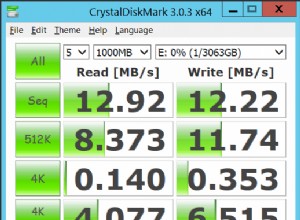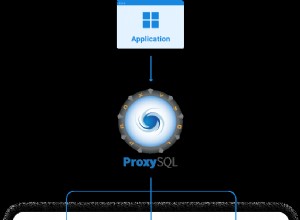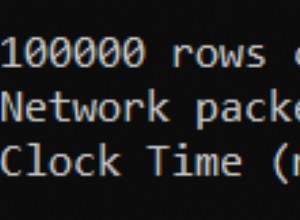Come hanno già detto altri commentatori, non c'è modo di evitare tale errore fino a Oracle 12.2 (dove List_agg ha la nuova opzione "ON OVERFLOW TRUNCATE").
Nelle versioni precedenti di Oracle, se si concatenano stringhe più lunghe di 4000 byte, si ottiene quell'errore. non hai modo di prevenirlo.
Se hai ancora bisogno di farlo nelle versioni precedenti, devi scrivere la tua funzione per farlo e devi modificare la tua query di conseguenza:
Questa funzione personalizzata potrebbe risolvere il tuo problema
create or replace type TAB_STRINGS is table of varchar2(4000)
/
create or replace function My_list_agg(strings in TAB_STRINGS,
separator in varchar2,
max_len integer) return varchar2 deterministic is
result varchar2(32000);
tmp varchar2(32000);
begin
result := null;
if strings is not null then
for idx in strings.first .. strings. last loop
tmp := strings(idx);
if tmp is not null then
if result is null then
exit when length(tmp) > max_len;
result := tmp;
else
exit when(length(result) + length(separator) + length(tmp)) > max_len;
result := result || separator || tmp;
end if;
end if;
end loop;
end if;
return result;
end;
/
è necessario utilizzare l'operatore CAST/COLLECT per utilizzarlo.
questo è un esempio di utilizzo:
select table_name,
My_list_agg(
-- first argument: array of strings to be concatenated
cast ( collect (column_name order by column_name) as TAB_STRINGS),
-- second (optional) argument: the separator
',',
-- third argument (optional): the maximum length of the string to be returned
1000
) as column_list
from user_tab_columns t
group by table_name
order by table_name




